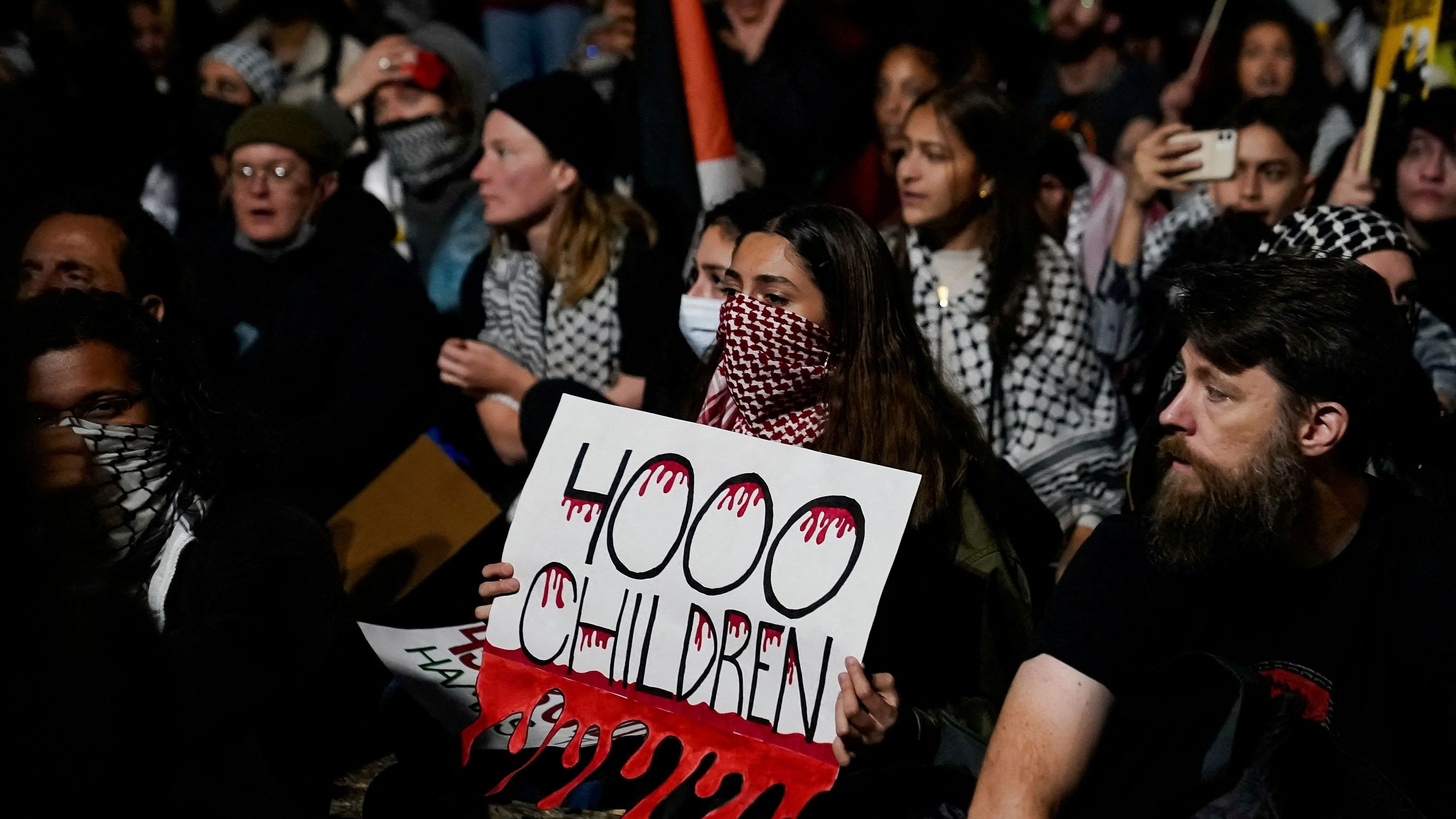
Demonstrators rally outside the White House in support of Palestinians in Gaza, amid the ongoing conflict between Israel and Hamas, in Washington, US.
Credit: Reuters Photo
New Delhi: India for the first time on Saturday recognised Hamas as a party in the ongoing conflict in West Asia, even as it subtly nudged Israel to adhere to “international humanitarian law” in its offensive on the Gaza Strip in retaliation to the October 7 terrorist attacks.
After Prime Minister Narendra Modi and his United Kingdom counterpart Rishi Sunak spoke over the phone, the Ministry of External Affairs (MEA) in New Delhi issued a press release, stating that the two leaders had exchanged views “on the developments in the West Asia region and the conflict between Israel and Hamas”.
External Affairs Minister S Jaishankar spoke to his Israeli counterpart Eli Cohen on Saturday. “Reiterated our firm commitment to countering terrorism, observance of international humanitarian law and for a two-state solution,” Jaishankar posted on X after his phone call with Cohen. His stress on observance of international laws came amid a worsening humanitarian situation in the Gaza Strip due to continued aerial bombardment by the Israeli Defence Forces, without sparing even schools and hospitals.
New Delhi was quick to condemn the terrorist attacks that Hamas carried out in southern Israel on October 7, but without naming the perpetrating organisation. Prime Minister Narendra Modi, himself, wrote on X, stating that he was deeply shocked by the news of terrorist attacks in Israel. He, however, avoided naming Hamas as the organisation responsible for the attacks. All subsequent statements issued by New Delhi in the past few weeks also avoided any reference to Hamas.
Hamas terrorists killed nearly 1400 people in southern Israel on October 7. They also took 229 hostages. Israel’s retaliatory airstrikes and artillery attacks have killed over 9000 persons in the Strip so far.
Hamas leader Khaled Mashal virtually participated in a pro-Palestine event in Kerala on October 28. This prompted Israel’s ambassador to India, Naor Gilon, to post on X that it was time for New Delhi to add Hamas to its list of terror organisations.
“New Delhi neither recognizes Hamas nor describes it as a terrorist group but pursues a delicate balance between its support for the Palestinian cause and opposition to terrorism,” P R Kumaraswamy, who teaches contemporary Middle East politics at Jawaharlal Nehru University, told DH on Saturday. He pointed out that the press release issued by the MEA in New Delhi after the talks between the prime ministers of India and the UK referred to Hamas for the first time.
However, the MEA press release on Saturday still refrained from blaming Hamas for the October 7 terrorist attacks on Israel.
Arindam Bagchi, the spokesperson of the MEA, on October 12 underlined that New Delhi had been very clear that the October 7 attacks on Israel had been “terrorist attacks”. He, however, avoided responding to a query on the suggestion of the Israeli ambassador that Hamas must be designated a terrorist organisation. Bagchi said that it was “a legal matter” and the “relevant authorities” were in the best place to respond to such a query.
New Delhi had last week refrained from supporting a United Nations General Assembly resolution that called for a humanitarian truce in the Gaza Strip. India abstained from voting on the resolution as it had not included any explicit condemnation of the terrorist attacks on Israel on October 7.
The UNGA passed the resolution with the support of 120 nations. It called for an "immediate, lasting, and sustained humanitarian ceasefire leading to the end of hostilities." Israel and the United States were among the 14 nations that opposed the resolution. India, along with 44 other nations including Germany, Canada, and the United Kingdom, chose to abstain from voting. This resolution was introduced by Jordan on behalf of the Arab Group and had co-sponsorship from Russia, Egypt, and the United Arab Emirates. In favour were nations like France, Iran, and China.
